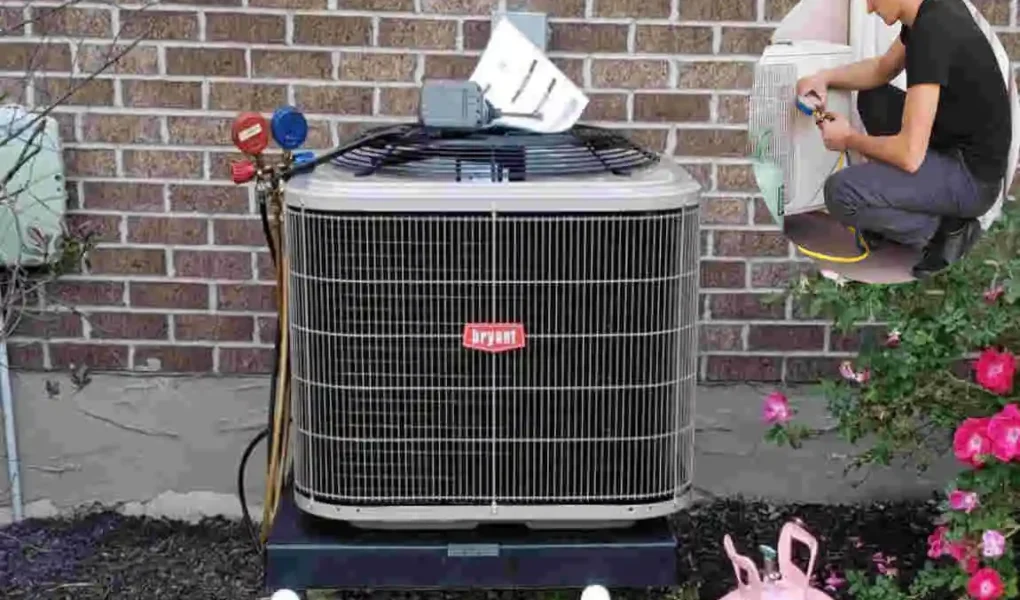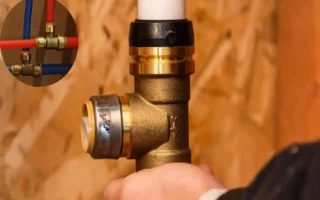If you own a home air conditioner, you probably know how important it is to keep it running smoothly, especially during hot summer months. One key ingredient that helps your AC cool your home comfortably is Freon. But have you ever wondered where to buy Freon for your home air conditioner? Knowing where and how to get the right Freon can save you time, money, and headaches.
We’ll also guide you on when to call a professional and how to handle Freon responsibly. Whether you’re a DIY enthusiast or just curious, this guide is here to help you make wise choices for your home cooling needs.
What is Freon and Why is it Important?

What Exactly is Freon?
Freon is a brand name that many people use to refer to the refrigerants inside air conditioning units. These refrigerants are special chemicals that absorb heat from inside your home and release it outside, making your indoor air cold and comfortable.
The most common types of Freon used in home AC units are:
- R-22: Also known as HCFC-22, this was the standard for many years.
- R-410A: A newer, more environmentally friendly refrigerant replacing R-22 in most modern ACs.
How Does Freon Work?
You may aslo read (dealing with emergency pipe leaks and bursts in home what to do).
Think of Freon as the lifeblood of your AC system. It continuously cycles through the unit, changing from liquid to gas and back, pulling heat out of your home and releasing it outdoors. Without enough Freon, your AC can’t cool effectively.
Environmental and Regulatory Considerations
It’s important to know that not all Freon is created equal when it comes to the environment. R-22 refrigerant, for example, damages the ozone layer and is being phased out globally. Because of this, new AC units use R-410A or other eco-friendlier gases.
Governments, including the U.S. Environmental Protection Agency (EPA), regulate the sale and use of Freon to protect the environment and public health.
Why Using the Correct Refrigerant Matters
Using the right type and amount of Freon in your AC ensures:
- Efficient cooling: Your unit performs at its best.
- Longer lifespan: Avoids damage caused by incorrect refrigerants.
- Safety: Prevents leaks and hazards associated with improper handling.
Signs You Need to Buy Freon for Your Home AC
How to Tell if Your Freon is Low
Before rushing to buy Freon, it’s essential to confirm if your AC actually needs it. Here are some common signs that might indicate low refrigerant:
- Reduced cooling performance: Your AC isn’t blowing cold air like it used to.
- Hissing or bubbling sounds: These noises can signal leaks.
- Ice buildup on coils or refrigerant lines occurs when Freon levels drop too low.
- Increased energy bills: The system works harder to cool your home.
Why Confirm Low Refrigerant First?
Simply adding Freon without fixing leaks or confirming the issue can be a waste of money and might cause more damage. Sometimes, poor cooling is due to other problems like dirty filters or mechanical faults.
When to Call a Professional vs. DIY Top-Up
- Call a pro if: You suspect a leak, your unit is old, or you don’t have the proper tools and certification.
- DIY top-up might work if: You have a small leak, the correct refrigerant, and you know how to handle it safely (with proper certification where required).
Where to Buy Freon for a Home Air Conditioner: Retail Options
Hardware Stores
Big-box hardware stores like Home Depot and Lowe’s often carry refrigerants suitable for home AC units. They usually stock R-410A, mainly since R-22 is increasingly restricted.
Local hardware stores might also have limited supplies, but availability varies.
HVAC Specialty Stores
These stores focus specifically on heating, ventilation, and air conditioning equipment and supplies. They often have a broader selection of refrigerants and knowledgeable staff who can help you pick the right product.
Automotive Supply Stores
Some car parts stores sell refrigerants for car air conditioners, which can sometimes be used for home units if they match the type needed. However, this option is less common and less reliable for home AC use.
Online Retailers and Marketplaces
You can find Freon on popular platforms like Amazon, eBay, and dedicated HVAC supply websites. Shopping online offers convenience and sometimes better prices. But beware of counterfeit products and check seller ratings carefully.
Availability by Freon Type
Freon Type Availability Status Notes
R-22 is Limited and decreasing. Being phased out, hard to find new stock
R-410A Widely available Standard in new AC units
Other types vary by region and supplier. Check local regulations
Professional HVAC Suppliers and Licensed Dealers
Why Certification Matters
Many refrigerants, especially R-22, require buyers to hold EPA Section 608 certification in the U.S. This is to ensure safe and legal handling.
Finding Licensed Dealers
Some professional HVAC suppliers sell directly to certified consumers or contractors. These dealers guarantee product quality and compliance with laws.
Benefits of Buying from Licensed Dealers
- Quality assurance: Genuine refrigerants that meet standards.
- Safety: Proper packaging and handling instructions.
- Legal compliance: Avoid fines and penalties.
How to Purchase Freon Responsibly and Legally
Federal Regulations Overview
In the United States, the EPA regulates refrigerants under Section 608. This means:
- You must be certified to purchase and handle certain types of Freon legally.
- Unauthorized sales are illegal and carry penalties.
Certification Requirement
The EPA certification involves training on safe refrigerant handling, leak detection, and environmental protection.
Risks of Unauthorized Purchases
Buying Freon from unverified sources can lead to:
- Receiving counterfeit or contaminated products.
- Legal trouble for improper handling.
- Damage to your AC system.
Tips to Verify Retailer Legitimacy
- Check for certifications or licenses on their website.
- Look for customer reviews and ratings.
- Confirm return policies and product guarantees.
Alternatives to Buying Freon Yourself
Hiring Certified HVAC Technicians
The safest and most reliable choice is to hire a professional who can:
- Diagnose leaks properly.
- Repair the system.
- Refill refrigerant safely and legally.
Environmentally-Friendly Refrigerants and New Technologies
Modern AC systems use refrigerants with lower environmental impact, like R-410A or newer blends. Investing in these can reduce future hassle.
DIY vs Professional Handling: Pros and Cons
Aspect DIY Professional Service
Cost: Lower upfront cost, Higher upfront, but avoids mistakes
Safety Risky without training Safer with certified technicians
Legality may be illegal in some cases , but fully compliant with regulations
Effectiveness depends on your skill. Guaranteed quality and performance
Step-by-Step Guide: Buying Freon for Your Home AC
Identify Your AC Unit’s Refrigerant Type
Look at your ACs:
- Model manual
- Unit label stickers
This tells you exactly which refrigerant to buy.
Check Local Regulations and Certification Requirements
Before purchasing, understand your area’s laws, especially if you need certification.
Determine Quantity Needed
Based on:
- Leak diagnosis results
- Manufacturer’s recharge specifications
Choose a Reputable Supplier
Consider:
- Local HVAC suppliers
- Trusted online retailers
Purchase Tips
- Compare prices and packaging sizes.
- Check for safety seals and expiry dates.
- Read product safety data sheets.
Safe Storage and Transport
- Store in a cool, dry place.
- Avoid exposure to heat or open flames.
- Transport upright and secured.
Cost Expectations and Budgeting
Typical Price Range
Freon Type Approximate Price per Pound (USD)
R-22 $50 – $150 (due to scarcity)
R-410A $20 – $40
Additional Costs to Consider
- Tools for DIY refill kits.
- EPA certification courses (~$200-$400).
- Professional service fees ($100-$400 depending on service).
Cost Comparison: DIY vs Professional
While DIY might seem cheaper, mistakes can lead to expensive repairs or legal fines. Professionals provide peace of mind and compliance.
Safety Precautions When Handling Freon
Protective Gear Recommendations
- Gloves resistant to chemicals.
- Safety goggles.
- Long sleeves to protect skin.
Proper Handling and Disposal
- Avoid inhaling vapors.
- Do not release refrigerants into the air.
- Dispose of old refrigerant according to local hazardous waste rules.
Environmental Impact
Leaks contribute to ozone depletion and global warming. Proper containment protects the planet and your community.
You may aslo read (top tips for maintaining a healthy plumbing system for your house).





